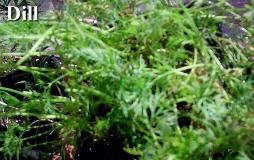
THE PROTOCOL: Niacin B3, Vitamin D, Vitamin C, Quercetin, Zinc, Methyltetrahydrofolate, and Selenium
Boosting NAD+ is of particular importance when it comes your health. NAD+ (nicotinamide adenine dinucleotide) is in every cell of your body. NAD+ is involved in cell creation, maintenance, metabolism, and regulating cell processes. Aging and illness both increases the breakdown of NAD+ and decreases the production of NAD+.
By maintaining lifestyle and diet, many ailments can be prevented and/or shortened in severity and duration.
THE DIET TO BOOST THE IMMUNE SYSTEM WITH NAD+
Quercetin
Quercetin plays an important role in maintaining NAD+, as well as, being an antioxidant and anti-inflammatory. Inflammation causes a reduction in NAD+. Quercetin also helps kill cancer cells, control blood sugar, and prevent heart disease.
Quercetin is a bioflavonoid found in fruits and vegetables. Coffee and red wine are rich in Quercetin. There isn't a Recommended Daily Allowance and the dosage depends on your weight; however, at least a 100mg per day is a good rule of thumb. An additional 100-500mg per day may be needed to boost NAD+. The highest levels are found in:
Zinc
The Recommended Daily Allowance of Zinc is 10-15mg per day.
Your body absorbs 20-40% of the zinc present in food and 80-100% of zinc present in water. Some studies suggest zinc absorbed through the mouth and throat are more effective at fighting colds and bolstering the immune response, as well as, reducing the number of upper respiratory infections in children. Zinc lozenges have been found to shorten the duration and severity of the common cold between 1 and 7 days.
Vitamin C
The Recommended Daily Allowance of Vitamin C is 60mg per day. For NAD+ boosting, 500-1000mg may be required. Whole foods are recommended. Juicing may provide higher concentrations of Vitamin C; however, other nutritional benefits are lost in the process. You may need to supplement your diet with 500mg of Vitamin C per day.
Vitamin D
Sunlight is the best way to get your Vitamin D.
What to know about: How You Photosynthesize (And Why a Vitamin D Supplement Is Not the Same)
The Recommended Daily Allowance of Vitamin D is 600-1,000iu per day. For NAD+ boosting, you may need to supplement your diet with 1,000-2,000iu of D3 per day. Few foods naturally contain vitamin D.
Foods
Selenium
The Recommended Daily Allowance of Selenium is 55mcg per day. Care should be taken not to overdose on Selenium. Consuming 50 Brazil nuts in one day can lead to selenosis resulting in breathing problems, heart attack, kidney failure, and death. Selenium supplements are not recommended.
Methyltetrahydrofolate
Methyltetrahydrofolate is the predominant form of dietary folate and the only species normally found in the circulation, and hence it is the folate that is normally transported into peripheral tissues to be used for cellular metabolism." (National Institute of Health) The recommended daily allowance for adults is 400 mcg DFE. Food sources include dark green leafy vegetables, fruits, nuts, beans, peas, seafood, eggs, dairy products, meat, poultry, and grains. Both parts -- methyl and folate -- are needed in the metabolization of NAD+. You can look for foods high in TMG (trimethylglycine) or Betine.
Betaine = TMG (trimethylglycine)
Niacin B3
The Recommended Daily Allowance of Niacin is 16mg per day.
Niacin is your main precursor to creating NAD+. It is the most important component of the diet.
It is also the most difficult to find sufficient quantities of in food. Most Americans get their Niacin from fortified breakfast cereal.
Niacin is sprayed on the outside along with several other vitamins. It would take 100 bowls of Wheaties/day to correct a Niacin deficiency.
To obtain the amount of Niacin needed from a natural diet would require 4 pounds of liver a day or 62 pounds of cabbage (not recommended).
You will likely need to supplement your diet with 50-100mg of Niacin per meal
in order to boost your NAD+ and immune system.
Nicotinic acid is essential, NOT nicotinamide.
Good Gut Bacteria
COVID (and other conditions) destroys good gut bacteria resulting in a compromised immune system.
Gut bacteria play several key roles in your health that include communicating with your immune system and producing vitamins. Without good gut bacteria it does not matter how vitamin rich your diet.
Your body can not metabolize most vitamins without good gut bacteria.
Most people start fermenting good gut bacteria from their mother's breast milk.
The best way to re-establish your good gut bacteria is to consume breast milk for at least 6 months.
Alternatively, you need to get all the right ingredients for fermentation including the proper 300 to 500 bacterial types, chemicals for the reaction, and lots of fiber.
Fiber is crucial in maintaining good gut health. Juicing and/or blending destroys most of the fiber. The best sources of dietary fiber are:
beans, whole grains, brown rice, popcorn, nuts, baked potato with skin, berries, and bran cereal.
Good sources of resistant starch include rice or potatoes that have been cooked and cooled, as well as, whole grains such as barley and oats.
Gut Microbiome: How to Support--and Avoid Damaging--Good Bacteria
The Gut Clock and How Microbial Rhythms Shape Health, Sleep, and Metabolism
Learn more about gut microbiome.
Conclusion
Having survived COVID-19, I became inflicted with COVID-long Haulers Syndrome.
After searching for a cause and a cure, I found The Vitamin and Mineral Protocol.
The dosage depends on your age, weight, preexisting conditions, and what COVID has done to your body.
The above diet is what helped me. You may need to increase the dosage of supplements.
The NAD+ plus diet may treat other conditions. If you are on drugs to help regulate your preexisting conditions, you may need to reduce your dosage. Perhaps someone on Lisinopril for high blood pressure, or Warfarin to thin their blood, or maybe Metformin for their type 2 diabetes, should have concern that replenishing your NAD+ will cause the medication to be too strong. You should check with your doctor about lowering your dosage.